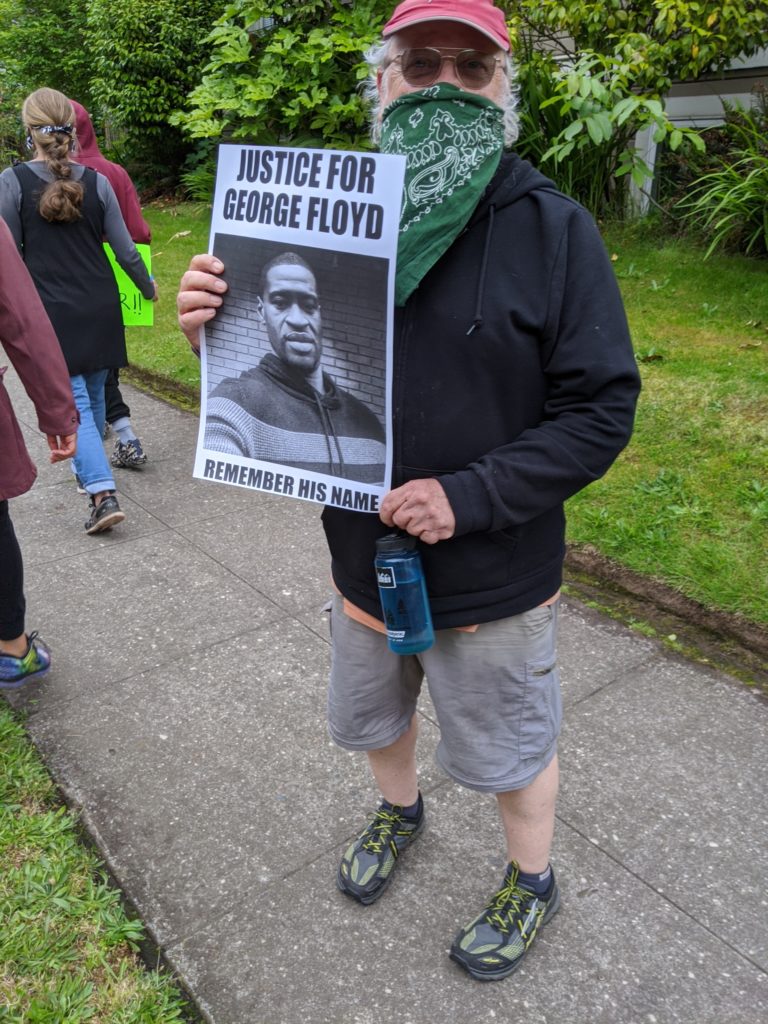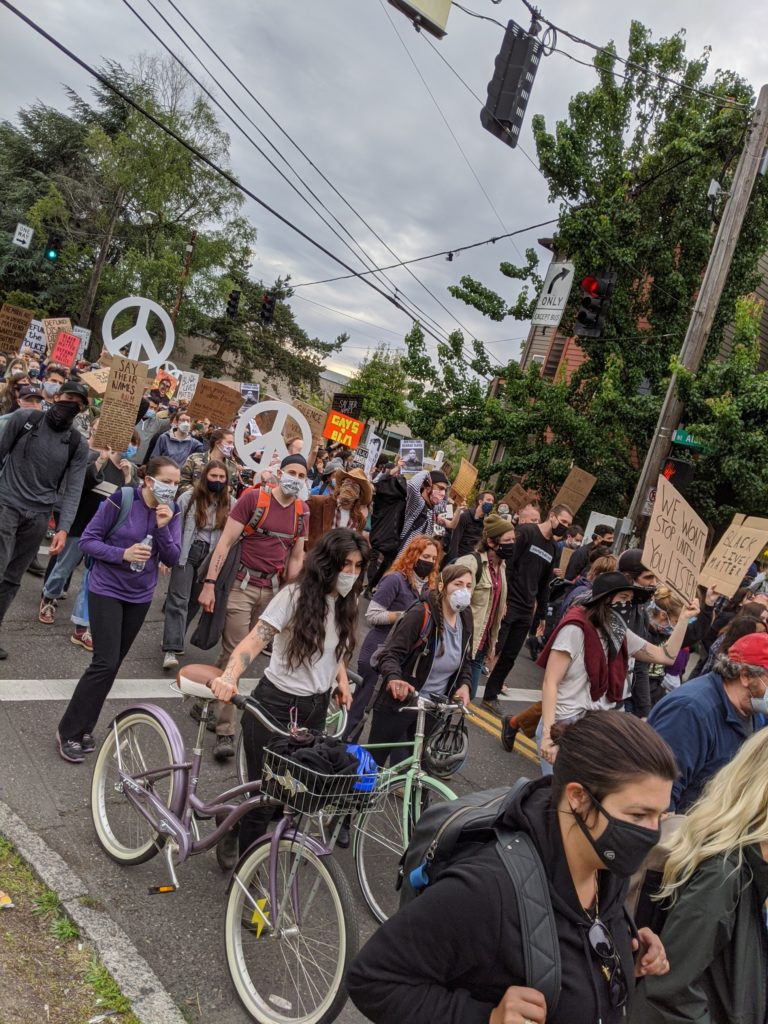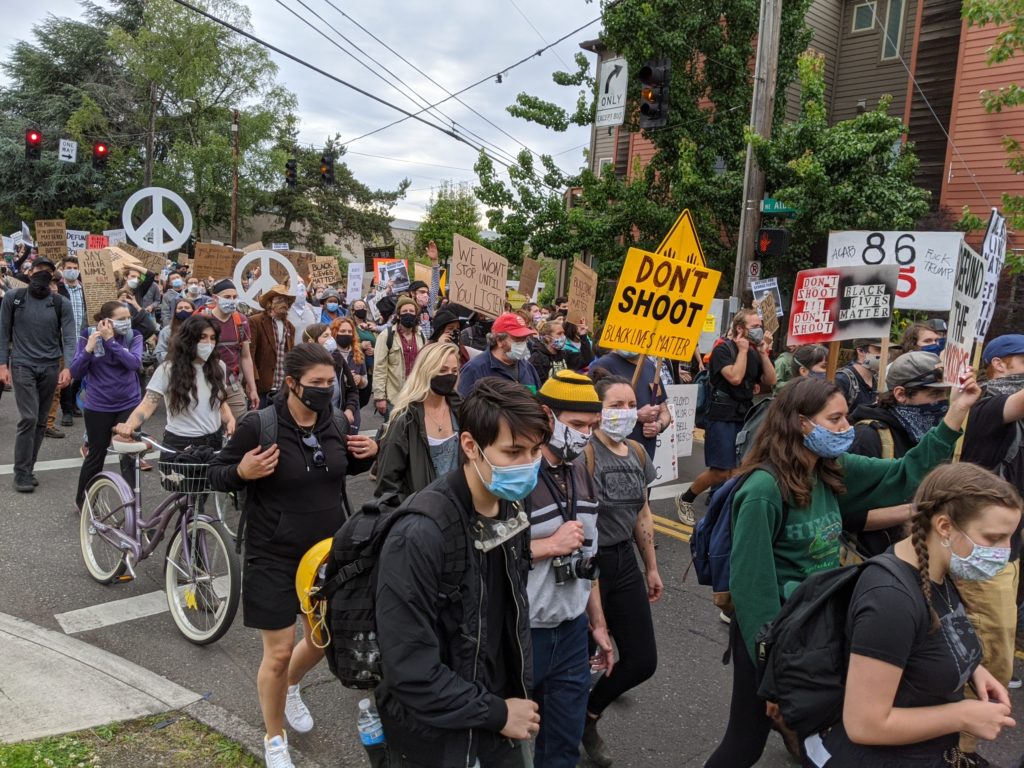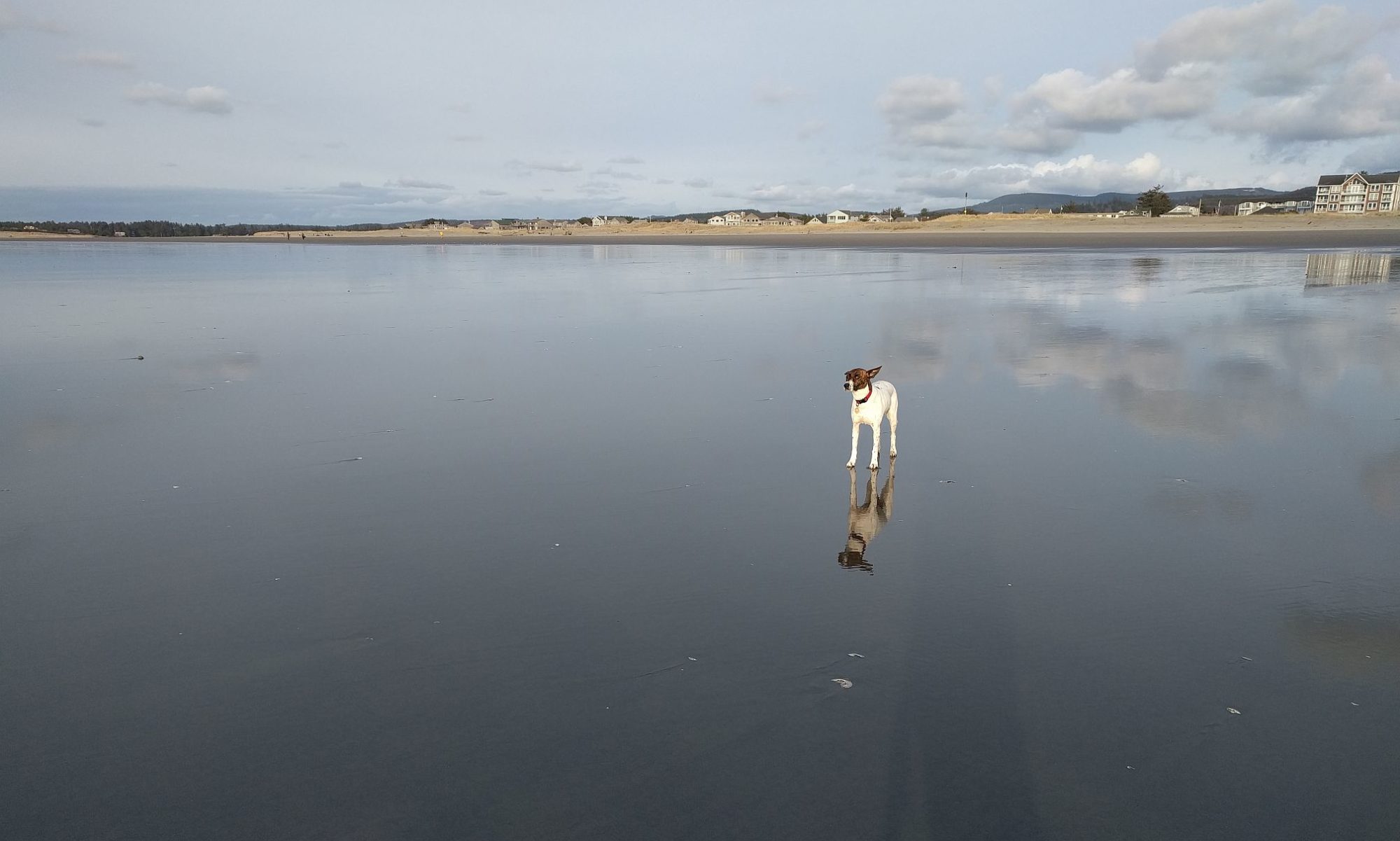I Want to Be a Part of the Change
June 14, 2020
It’s tough to figure out what to write and post. I know I need to listen, yet I also need to write and act—even when I’m not certain about what is the right thing to do or say.
Along with many, I’ve felt fear and a collective ache and grief since the murder of George Floyd by a policeman in Minneapolis. I’m sorry it’s taken until now for me to really wake up to the degree of ongoing injustice in the United States—for Black Americans. I regret my complacency.

I’m no political analyst nor historian, but my grandfather flew airplanes for the German army during WWII. My great-grandmother, a house-cleaner and not well-educated—had tried to warn her daughter. She knew Hitler was dangerous. But my grandmother, her daughter, was swept up in the years, Nazi-youth, and didn’t listen to her mother’s warning. Hitler lead the country into the worst of human behavior, and he did it by instilling hatred between groups of people.
I felt shame for decades, knowing this history in my blood. But I grew up with the stories: Desperate people followed a crazy man, listened to a leader who lead them into darkness. He cradled their fears. He promised more wealth and power to those who wanted more for themselves and their children at the expense of the “others”.
So many died, and I’m sorry for these losses. The best I can do now is to keep alive awareness and to speak out and take part in action.
Like so many people I know, a deep unease grew when the current president moved into the White House. Throughout his campaign he had spread hatred and demonstrated himself a bigot, misogynist, and clearly a man more interested in division than in unity or justice for all.
That Thanksgiving dinner someone said, “Well, now we’ll have to support him. He is our president.”
“He scares me,” I said. “He is not kind. There will be trouble—and he will lead the country to bad places.”
It’s easy to feel overwhelmed, inadequate, and then do nothing toward change and justice for all. Today’s uprising and rallies are needed. I aspire to do better than I have–to serve my neighbors, to educate myself, to admit when I’ve misunderstood and remained dormant.
Justin Lowell, Sean Onterrosa, and Jamel Floyd were three names added to the list of men of color who were injured or killed in incidents involving law enforcement officers the week of June 8 . Other men and women killed in recent years include Trayvon Martin, Tamir Rice, Michael Brown, Eric Garner, Philando Castile, Breonna Taylor—and there are so many more who were killed because the police were afraid. We cannot repeat their names too often. Check out this BBC article for details of these lost lives.
The mass incarceration of people of color has fed poverty in Black communities and impacts many families’ ability to thrive and buy their own home. Men and women raising their own children must often spend their earnings also raising the children of cousins and brothers.

The many days and nights of protest—in Portland, Seattle, Paris, London and in New Zealand and South Africa—lend hope, but we have so much work to do. In the eulogy for George Floyd, Al Sharpton called on the community to keep up the fight. He knows—and we know—we’ve been living in an unjust America for too long. Black communities aren’t the only Americans suffering, but they need to be our focus now.
“We are fighting an institutional, systemic problem,” Sharpton said.
Working for justice for all will benefit all. There is enough.
We who are the privileged have been too comfortable. We have not fought for our Black brothers and sisters to live in a world safe for themselves and their children.
“From 1882 to 1986, Congress failed to pass anti-lynching legislation 200 times,” (The Guardian) Last week expectations were high until one Republican senator, Rand Paul, stalled the bill again. Kamala Harris, Cory Booker and Tim Scott, are the only three African American members of the Senate, and they wrote this most recent legislation in 2018.
Why would anyone want lynching to not be a federal crime? I had assumed it already was a federal crime.
We need more people of color in our leadership, and the rest of us need to understand the problems more deeply and see ourselves as a part of the solution. I’m waking up to this reality.
I am embarrassed. I have so much to learn.
We who have been members of the privileged group have so much work to do. Much of it requires listening, humbly hearing stories that leave us in tears and on our knees. We will need to adjust our fragile tendencies and accept that we have failed. We have failed to protect, to speak out, to alter our system, to run for office or support others who would fight for changes in our society that would lead to all Americans living with dignity and as equally deserving of an excellent education, a well-paying job, and basic healthcare that leaves no one bankrupt.
We would also provide affordable nutritious food for all—and the education to support a diet that does not lead so often to diabetes, obesity, and so many other preventable diseases.
Not everyone should write or speak or attend a demonstration. We each must decide our way. Some of us will lead workshops. Others will sit in prayer. Bake chicken for the neighbors. Offer shelter to someone in need. Babysit children.
Listening, however, is a practice I hope we each will do better. Listening requires patience. Listening asks that I set my own worldviews and religious ideas aside so I can hear another person as she is.
And I’ll need to drop my expectations. Not everyone will want to talk. Not everyone will listen. Which brings me back to why I have decided to write this blog post: We need to create many different pods and pools for conversation. Like frogs we can swim and jump around, and the movement can lead to more fertility and kindness all around the pond that seeps into the wetlands that feed a river into the ocean.
I have a dream that we will each become Independents: We will sit still and listen to whatever directs us toward justice and peace and kindness. We will drop single-issue answers and reflect on the so-called big picture.
I have a dream that we will clean up our house and refurnish and refine and eventually even redistribute the wealth—way beyond dollars.
I have a dream that we will live as if all children are our children.

For nearly two decades I served as a public educator, and this is where I still hang my banner: If we would create a national system of standards for all school so that all children would be educated well, we would flourish. We can offer choices because not every child is meant to graduate college or to build a house. But we need to value equally the many jobs and talents and ways a person can contribute to a healthy society—and pay everyone a living wage.
Let me be brave. Let me be compassionate. Let me speak and act with soft heart and strong mind and listen.
Let me accept there is little I can control but my choices.
Let me listen to my great-grandmother’s wisdom and warning and build on them: She was awake and speaking but not loud enough.
Let me not be afraid of being afraid.
Let me continue toward the light and notice when I need to redirect my steps.
And may I observe you along the way and listen with patience and act with urgency, and admit when I’ve made a mistake and need to toss out the dough and begin again to knead essentials and watch them rise until it’s time to bake and re-feed the starter and do it all again.
Resources are endless, but here are a few to consider checking out. . .
The Slowdown with Tracey K. Smith (the 22nd United States Poet Laureate from 2017 to 2019), delivers a different way to see the world every weekend – through poetry. Produced in partnership with the Poetry Foundation. Powerful, beautiful, brave, clear!
White Fragility: Why It’s So Hard For White People To Talk About Racism, 2018, Beacon Press, by Robin DiAngelo– and her videos
Between the World and Me, 2015, by Ta-Nehisi Coates: A powerful book written as a letter to his then-15 year old son as a warning and guide for living as a Black man in the United States.
Malcolm X (available on Netflix): Spike Lee’s 1992 film shows the struggle so vehemently underway in the 60’s that we now know did not achieve the progress and equality and respect it had hoped to create.
Please add comments below if you would like to share ideas and suggestions. Thank you!

